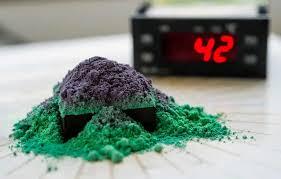Sponsored
Food Allergy Treatment in Dubai: A Complete Guide

Food allergies are becoming increasingly common around the world, including in Dubai. They occur when the body’s immune system mistakenly identifies certain foods as harmful and reacts against them. These reactions can range from mild symptoms, such as rashes or stomach upset, to severe life-threatening conditions like anaphylaxis. Understanding how food allergies work, their symptoms, and available treatments is essential for anyone affected. In this article, we will discuss food allergy treatment in dubai, exploring options, strategies, and ways to live safely with food allergies.
What Is a Food Allergy?
A food allergy happens when your immune system reacts abnormally to a specific protein in food. Normally, your immune system fights bacteria, viruses, and other harmful invaders. But in the case of a food allergy, it sees harmless food as a threat and triggers a response.
Common foods that cause allergies include:
-
Peanuts
-
Tree nuts (like almonds, walnuts, cashews)
-
Milk
-
Eggs
-
Wheat
-
Soy
-
Fish and shellfish
Symptoms of food allergies can appear within minutes or a few hours after consuming the allergen. They vary from mild to severe and include:
-
Skin reactions: hives, redness, itching
-
Swelling of lips, tongue, or throat
-
Digestive problems: stomach pain, vomiting, diarrhea
-
Respiratory issues: runny nose, coughing, wheezing
-
Anaphylaxis: a severe, life-threatening reaction that requires immediate medical attention
Diagnosing Food Allergies in Dubai
Proper diagnosis is the first step in managing a food allergy. In Dubai, healthcare providers use several methods to identify food allergies:
-
Medical History Review
A doctor will ask about your symptoms, their timing, and the foods you have eaten. This helps narrow down potential allergens. -
Skin Prick Test
Small amounts of suspected allergens are introduced to the skin using tiny pricks. If a reaction occurs, it indicates an allergy. -
Blood Tests
These tests measure the level of Immunoglobulin E (IgE) antibodies in your blood, which the body produces in response to allergens. -
Oral Food Challenge
Under strict medical supervision, small amounts of the suspected food are consumed to observe for any reaction. This is considered the most accurate method for confirming food allergies.
Common Types of Food Allergy Treatments
Treatment for food allergies focuses on preventing allergic reactions and managing symptoms if exposure occurs. In Dubai, the following treatment options are available:
1. Avoidance of Allergens
The most effective way to prevent a reaction is to avoid foods that trigger allergies. This requires careful reading of food labels, asking about ingredients at restaurants, and being cautious about cross-contamination.
2. Emergency Medications
For those at risk of severe reactions, carrying emergency medication is crucial. This may include:
-
Epinephrine auto-injectors: Used immediately during a severe allergic reaction
-
Antihistamines: Help relieve mild allergic symptoms like itching or hives
3. Immunotherapy
Recent advancements in allergy treatment include oral or sublingual immunotherapy. This involves gradually introducing small amounts of the allergen to the body under medical supervision. Over time, this can reduce sensitivity and prevent severe reactions.
4. Dietary Management
A registered dietitian can help plan a balanced diet while avoiding allergens. They provide guidance on alternative foods to ensure proper nutrition.
5. Education and Awareness
Patients and families must understand the risks, read labels carefully, and know how to use emergency medications. Schools and workplaces in Dubai are increasingly aware of food allergies and provide training to handle emergencies.
Living Safely with Food Allergies
Managing food allergies is not just about treatment—it’s about lifestyle adjustments. Here are some tips for living safely with food allergies in Dubai:
-
Always read labels: Look for ingredients that may trigger your allergy.
-
Communicate clearly: Inform restaurants and caterers about your allergy.
-
Carry emergency medication: Keep an epinephrine auto-injector handy at all times.
-
Educate family and friends: Make sure those around you know how to respond in case of a reaction.
-
Wear medical alert identification: This can help in emergencies if you are unable to communicate.
Food Allergy Treatment for Children
Children are especially vulnerable to food allergies. Parents in Dubai must be extra vigilant about what their children eat. Pediatricians often recommend early testing and careful monitoring of symptoms. Schools are encouraged to maintain allergy-safe zones and educate staff on recognizing and responding to allergic reactions.
Challenges of Food Allergy Treatment in Dubai
While Dubai has advanced healthcare facilities, managing food allergies still comes with challenges:
-
Cross-contamination: Even trace amounts of allergens can trigger reactions.
-
Awareness: Not everyone in public spaces understands the seriousness of food allergies.
-
Access to specialized care: While Dubai has excellent allergy specialists, not all residents are aware of where to find them.
The Role of Technology in Food Allergy Management
Technology is helping patients in Dubai manage their allergies more effectively. Mobile apps can:
-
Track foods and symptoms
-
Scan barcodes for allergen warnings
-
Provide reminders to carry medication
Additionally, online support groups provide communities for sharing experiences and tips for living with allergies.
Future of Food Allergy Treatments
Medical research is ongoing to improve food allergy treatments. Some promising developments include:
-
New immunotherapy techniques that are safer and more effective
-
Biologic medications that target immune system responses
-
Genetic research to understand why certain people develop food allergies
These advancements may provide more long-term solutions, reducing the risk of severe reactions.
Conclusion
Food allergies can significantly affect a person’s quality of life, but proper management and treatment can help individuals live safely and confidently. In Dubai, patients have access to advanced medical care, including accurate diagnosis, emergency medications, immunotherapy, and dietary guidance.
If you or your child are dealing with food allergies, consulting a specialist is the best way forward. Dr. Neil Philip Galletly, a leading expert in the field, can guide patients through effective food allergy treatment in Dubai, ensuring safety and improved quality of life. By understanding your allergy, taking preventive measures, and having an emergency plan, you can enjoy daily life with greater peace of mind.




